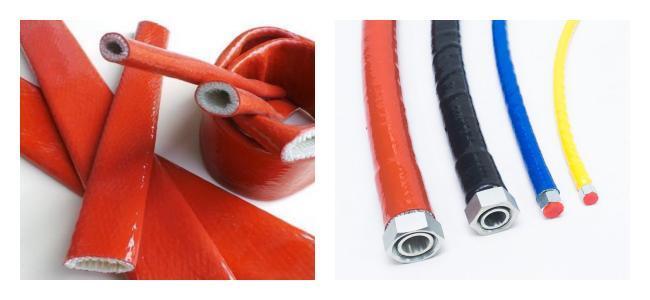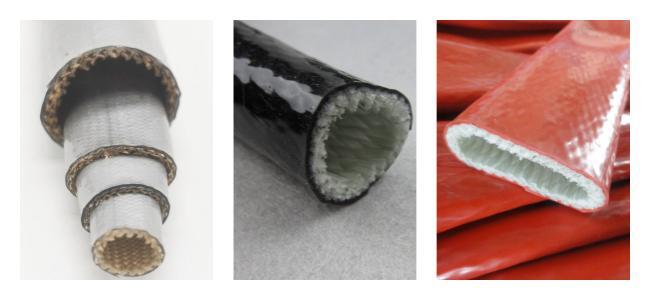The selection of the best heat protector for hydraulic hoses depends on various factors such as the operating temperature range, application requirements, and environmental conditions. Here are some common types of heat protection for hydraulic hoses:
 Heat-resistant Sleeves:
Heat-resistant Sleeves:
Material: Fiberglass or silicone-coated fiberglass sleeves are commonly used for heat protection.
Features: These sleeves provide a protective layer that withstands high temperatures and offers excellent insulation.
Thermal Insulation Tape:
Material: Reflective aluminum foil or fiberglass-reinforced tapes.
Features: Wrapping hydraulic hoses with thermal insulation tape helps reflect and dissipate heat, preventing the hoses from absorbing excessive temperatures.
Fire Sleeves:
Material: Silicone-coated fiberglass or other fire-resistant materials.
Features: Fire sleeves are designed to provide not only heat resistance but also protection against flames and sparks. They are crucial in applications where there is a risk of fire.
Heat Shrink Tubing:
Material: Polyolefin or fluoropolymer-based heat shrink tubing.
Features: Heat shrink tubing provides a tight, protective covering around hoses, offering resistance to heat and environmental factors. It can also have flame-retardant properties.
Metal Heat Shields:
Material: Aluminum or stainless steel.
Features: Metal heat shields can be used to deflect radiant heat away from hydraulic hoses. They are durable and effective in high-temperature environments.

When selecting a heat protector for hydraulic hoses, consider the following factors:
Temperature Range: Ensure that the heat protector is suitable for the expected operating temperatures.
Flexibility: Choose a solution that allows flexibility for movement if the hydraulic hoses are subject to bending or flexing.
Installation Ease: Consider the ease of installation, especially if retrofitting existing systems.
Environmental Conditions: Evaluate the resistance of the heat protector to environmental factors such as chemicals, oils, and abrasion.
It's recommended to consult with the hose and equipment manufacturer or us to determine the most suitable heat protection solution for your specific application.

